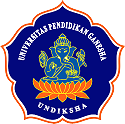Pengembangan Panduan Konseling Individu Pendekatan Behavior Teknik Modeling untuk Meningkatkan Self Acceptance Siswa
DOI:
https://doi.org/10.23887/jurnal_bk.v8i1.1654Keywords:
Panduan Konseling Individu, Pendekatan Behavior, Teknik Modeling, Penerimaan DiriAbstract
This study is a development research. The product developed is a Individual Counseling Guide Behavior Approach Modeling Technique to Improve Student Self Acceptance. The development procedure in this study uses the 4D development imodel proposed by Thiagarajan as follows: (1) Defining Stages (Define), (2) Design Stages, (3) Development Stages (Develop), (4) Deployment Stages (Development Stages). disseminate). The subjects involved in this study were 5 experts in counseling guidance, including 3 Counseling Guidance lecturers at FIP Undiksha and 2 Counseling Guidance Teachers at SMAN 2 Kuta. Before the book is distributed, the book required effectiveness test by involving 5 students as subjects. Based on the use of 22 instrument items that were tested on the validity test, the result revealed the entire instruments had good validity. Based on this assessment, it was found that the content validity index (CVI) of the guidebook was categorized as very suitable. The conduct of content validity index assessment is crucial to do because it determines the suitability for the use. Thus, the hypothesis testing revealed the Counseling Book with a t count of 7.968 with a significance level of 0.05 and an ES value of 1.593 which is categorized in the high ES category.
References
Usman, I., Puluhulawa, M., & Smith, M. Bin. (2017). Teknik Modeling Simbolis dalam Layanan Bimbingan dan Konseling. Proceeding Seminar Dan Lokakarya Nasional Revitalisasi Laboratorium Dan Jurnal Ilmiah Dalam Implementasi Kurikulum Bimbingan Dan Konseling Berbasis Kkni, 84–92. http://journal2.um.ac.id/index.php/sembk/article/view/1273
Thiagarajan, S., Semmel, D. S., & Semmel, M. I. (1976). Instructional development for training teachers of exceptional children: A sourcebook. Journal of School Psychology, 14(1), 75. https://doi.org/10.1016/0022-4405(76)90066-2
Sugiyono.(2009). Metode Penelitian Pendidikan Pendekatan Kuantitatif, Kualitatif, dan R&D. Bandung : Alfabeta
Komalasari, G., Wahyuni, E., K. (2010). Teori dan Teknik Konseling. 21–47.
Lawshe, C. H. (1975). A quantitative approach to content validity”.Personnel Psychology. Personnel Psychology, 28, 563–575.
Handayani, M. M., Ratnawati, S., Helmi, A. F., & Mada, U. G. (2015). Efektifitas Pelatihan Pengenalan Diri Terhadap Peningkatan Penerimaan Diri Dan Harga Diri. Jurnal Psikologi, 25(2), 47–55. https://doi.org/10.22146/jpsi.7504





